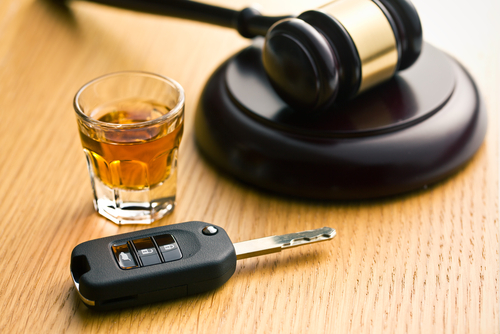If you have been charged with Driving Under the Influence (DUI) in Pennsylvania, you will be asked by a judge to enter a plea. You can typically choose from three options: ‘guilty,’ ‘not guilty,’ or ‘no contest.’ In some situations, special circumstances like the Alford Plea may also apply. Read on to find out the difference between a ‘no contest’ vs. ‘guilty’ plea in a DUI case in Pennsylvania.
Entering a ‘Not Guilty’ Plea
If you enter a plea of ‘not guilty’ in a DUI case, you are saying that you did not commit the crime. At that time, the Commonwealth of Pennsylvania becomes responsible for proving you committed the crime with proof that is “beyond a reasonable doubt,” and your lawyer begins to get your case ready for trial.
During the period before the trial begins, you may be able to change your plea to ‘guilty’ or ‘no contest’ and agree to reduced charges in exchange.
Entering a ‘Guilty’ Plea
When you enter a ‘guilty’ plea, you are saying that you committed the crime with which you have been charged. Depending on the circumstances, you could receive the maximum sentence for the crime. Defendants are usually advised to plead ‘not guilty’ at the beginning of their case, so they have the opportunity to plea bargain at a later stage of the case.
Once the court accepts your ‘guilty’ plea and you have received your sentence, you cannot withdraw your plea.
Entering a ‘No Contest’ Plea
Under Pennsylvania law, entering a ‘no contest’ plea means that you are not admitting guilt for the crime and that you are waiving the right to have a trial and present a defense. The judge can then sentence you based on the charges against you.
In Pennsylvania, pleading ‘no contest’ or pleading ‘guilty’ will generally result in the same consequences. However, your ‘no contest’ plea cannot be used against you in a civil or criminal case because you did not legally admit guilt. Pleading ‘no contest’ may be beneficial if you appeal your case; if you plead ‘guilty,’ you have no basis for an appeal.
The Alford Plea
This plea is occasionally used in Pennsylvania if you believe that you are innocent of the charges leveled against you but acknowledge that the government has enough evidence against you to convict you in a trial.
When to Use Which Plea
Your DUI lawyer knows the difference between a ‘no contest’ vs. ‘guilty’ plea in a DUI case in Pennsylvania and can advise you as to the best plea to enter, given the specifics of your case and the nature of the prosecution’s evidence against you. You do not want to enter a plea that exposes you to the risk of penalties you might not have to face.
For example, your lawyer may also be able to suppress evidence that was gained in violation of your constitutional rights. The police are not allowed to pull you over or search your vehicle unless they had probable cause to do so. If you were given a field sobriety test, or a blood or urine test, the procedure must be done in a completely lawful manner, as well. An attorney will know which evidence is permitted in court and work to protect your rights at every step.
Your Plea Could Affect Future Lawsuits Against You
If people were injured as a result of your DUI, they may try to sue you in civil court later. If you have a ‘guilty’ plea on your record, it will be more difficult to protect yourself from their claims. If you pled ‘no contest,’ you did not admit guilt and they will not be able to use the conviction to prove that you were liable.
Get Help Today
Being charged with a DUI does not necessarily mean that you will go to jail or lose your license. Contact the McKenzie Law Firm, P.C. at 610-680-7842 to learn more about how we can help with a DUI charge in Pennsylvania.



